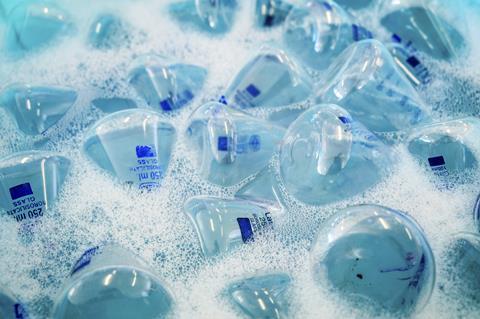How we can celebrate technicians all year round
The #TECHOGNITION initiative celebrates the essential work of technicians in schools and FE colleges across the UK, and not just science techs either. I’m a big fan, and I share it with all technicians, especially as I’ve met quite a few who’d like their hard work to be recognised. But when we talk about recognition for technicians (techognition), what do we want?
Of course, a salary commensurate with the pressure and expertise the job entails would be warmly welcomed, but in the current funding climate we’re going to have to accept that this is out of the question. So how can we otherwise recognise the contributions technicians make to our schools? Based on my highly unscientific study of comments online, I would say most technicians would agree with some or all of the following:
1. Teachers recognising technicians as fellow professionals, all working as a team with shared objectives

We want to be valued members of our departments. I’m lucky that this has been the case in both my schools. Other technicians aren’t so lucky; they’ve encountered an ‘us and them’ culture. Teachers are busy people and it’s easy for them to see us as those elves in the prep room who organise equipment for practicals, and only talk to us when things go wrong. But technicians are part of the teaching team. Simply by recognising this we improve morale. And by working together we can improve teaching, take a little pressure off teachers and hopefully inspire our students. Teachers and technicians alike need to value each other.
2. SLT realising the technician role is technical and specialised
Inclusion is key. Incorporating us into the whole school organisation chart, recognising our contributions in school bulletins – both of these would help. Not mentioning us indicates that the SLT are unaware of the work we put in to designing novel practicals, often outside the syllabus, and keeping everyone safe.
3. Students realising how we contribute to their education
For this we need teachers to acknowledge the work that we do before and after a practical. They could discuss with the students how much work it is for us to clean out 15 filter papers and beakers of sand after a sand/CuSO4/water separation practical, for example. If they did this each time, the students would become more aware of the role we play.
4. An occasional word of thanks
While a token gift such as a piece of chocolate at Easter or after an open day doesn’t go amiss, a simple thank you is always welcome.
So let’s use this #TECHOGNITION week as a springboard to give technicians the recognition they deserve and celebrate the role they play in our schools and students’ education. And not just for this week – but beyond.
This year, #TECHOGNITION week runs 2–6 March. Use it as your opportunity to alert your school’s support staff, teachers and students to technicians’ work. Find out more on the website and Twitter.
Safety first
Technicians share their concerns and experiences of health and safety, and risk assessments in the school lab.

-
I don’t like to turn teachers’ requests down, especially experienced ones, because I trust they know what they are doing. However, I do not compromise my own safety. For example, a teacher requested the toxic PbCO3 for a decomposition practical. Even though I was not comfortable with the salt, I went ahead and ordered the chemical. While waiting for it to arrive, I was thorough in my risk assessment – and when it did, I explained the safety measures I had put in place. At this point, because I had gone to so much trouble to minimise risk for both teacher and students, the teacher decided not to use it. It taught me that teachers, new or experienced, don’t always take the risks seriously, but they respect my practical experience and professionalism.
-
Safety is a big worry. In my old job, I was thrown in at the deep end and was expected to do unsafe things that I was unsure of when no one was around. This even led to me being rushed to A&E after piercing my hand with a glass rod. In my current school, my HOD is super. He understands if I am scared or nervous and doesn’t expect me to make anything dangerous when I’m in the building on my own.
-
I do worry about the students’ safety, especially those who muck around during practicals with harmful chemicals.
-
You can’t discuss safety without risk assessment. The art of risk assessment starts with considering the hazards and how likely exposure to those hazards is for all concerned. How can you reduce the hazard and the likelihood of something going wrong to acceptable levels? If you can’t, find an alternative. But remember, eliminating risk is impossible. The key word here is ‘acceptable’. Plus, CLEAPSS, SSERC and the RSC have done a lot of the legwork already.














No comments yet